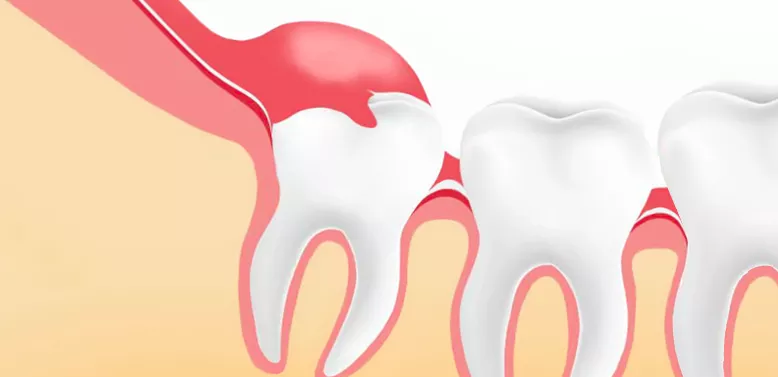Wisdom teeth removal is a common dental procedure that many people undergo during their late teens or early twenties.
The recovery process involves managing pain and discomfort as the body heals. This article will explore what the pain feels like after wisdom teeth removal, the factors that influence pain levels, and effective strategies for managing and alleviating discomfort.
What Does The Pain Feel Like after Wisdom Teeth Removal?
Initial Pain and Discomfort
Immediately after the anesthesia wears off, you may begin to feel pain and discomfort at the extraction sites. This pain is typically a throbbing or aching sensation. The intensity can vary from mild to severe, depending on factors such as the complexity of the extraction, individual pain tolerance, and the presence of any complications during surgery.
Swelling and Inflammation
Swelling and inflammation are natural responses to the surgical trauma of wisdom teeth removal. The cheeks and gums around the extraction sites may become swollen, which can contribute to the sensation of pain. Swelling usually peaks within 48 to 72 hours post-surgery and gradually subsides over the following days.
See Also: What Is The Best Age to Get Wisdom Teeth Removed
Pain During Healing
As the healing process progresses, the pain typically transitions from acute to more of a dull, aching sensation. This phase can last for several days to a couple of weeks, depending on individual healing rates and adherence to post-operative care instructions. During this time, you may also experience tenderness when touching the areas around the extraction sites.
Factors Influencing Pain Levels
Complexity of the Extraction
The complexity of the wisdom teeth extraction plays a significant role in the level of pain experienced. Simple extractions, where the teeth are fully erupted and easy to access, generally result in less post-operative pain. Conversely, impacted teeth that require more invasive surgical procedures can lead to increased pain and a longer recovery period.
Individual Pain Tolerance
Pain tolerance varies widely among individuals. Some people may experience only mild discomfort, while others may find the pain more intense and difficult to manage. Factors such as overall health, previous experiences with pain, and psychological factors can influence individual pain perception.
Post-Surgical Complications
Complications such as dry socket, infection, or nerve damage can significantly increase pain levels after wisdom teeth removal. Dry socket occurs when the blood clot at the extraction site is dislodged or dissolves prematurely, exposing the underlying bone and nerves. This condition is characterized by severe, throbbing pain that can radiate to the ear, eye, or temple.
Managing Pain After Wisdom Teeth Removal
Medication
Pain management typically involves the use of over-the-counter pain relievers such as ibuprofen or acetaminophen. In some cases, your dentist or oral surgeon may prescribe stronger pain medications. It is essential to follow the prescribed dosage and instructions to ensure effective pain relief and minimize the risk of side effects.
Cold Compresses
Applying cold compresses to the cheeks can help reduce swelling and numb the area, providing temporary pain relief. Use a cold pack or a bag of ice wrapped in a cloth and apply it to the affected area for 15-20 minutes at a time, with breaks in between.
Rest and Elevation
Resting and keeping your head elevated can help minimize swelling and discomfort. Avoid strenuous activities and follow your dentist’s recommendations regarding rest and activity levels during the initial recovery period.
Diet and Hydration
Eating soft, cool foods such as yogurt, applesauce, and smoothies can help avoid irritation at the extraction sites. Avoid hot, spicy, or hard foods that can exacerbate pain and delay healing. Staying hydrated is also crucial for overall recovery, but be sure to drink fluids without using a straw, as the suction can dislodge the blood clot and lead to dry socket.
Long-Term Pain and Recovery
Healing Timeline
The healing timeline for wisdom teeth removal varies among individuals. Most people experience significant pain relief within a week, with complete healing of the extraction sites taking several weeks to a few months. During this time, it is important to maintain good oral hygiene and attend follow-up appointments with your dentist or oral surgeon to monitor the healing process.
Signs of Complications
While some pain and discomfort are normal after wisdom teeth removal, certain symptoms may indicate complications that require medical attention. These include:
Severe or worsening pain after the initial few days
Swelling that continues to increase after the first 72 hours
Persistent bleeding that does not subside
Foul taste or odor in the mouth, indicating possible infection
Numbness or tingling that persists, which may suggest nerve damage
If you experience any of these symptoms, contact your dentistor oral surgeon promptly for evaluation and treatment.
Psychological Aspects of Pain Management
Coping Strategies
Managing pain after wisdom teeth removal is not only a physical challenge but also a psychological one. Developing effective coping strategies can help reduce anxiety and improve your overall pain management experience. Techniques such as deep breathing exercises, meditation, and mindfulness can help calm the mind and reduce the perception of pain.
Support System
Having a support system of family and friends can also play a crucial role in pain management. Emotional support, assistance with daily activities, and encouragement can help you navigate the recovery period more comfortably.
Maintaining A Positive Outlook
Maintaining a positive outlook and focusing on the long-term benefits of wisdom teeth removal can help you stay motivated during the recovery process. Remember that the temporary discomfort will lead to improved oral health and prevent potential future dental issues.
Conclusion
Wisdom teeth removal is a common procedure that involves a period of pain and discomfort during the recovery process.
Understanding the nature of the pain, the factors that influence it, and effective pain management strategies can help you navigate this challenging time more effectively. By following post-operative care instructions, maintaining good oral hygiene, and seeking prompt medical attention for any complications, you can ensure a smoother and more comfortable recovery experience.

